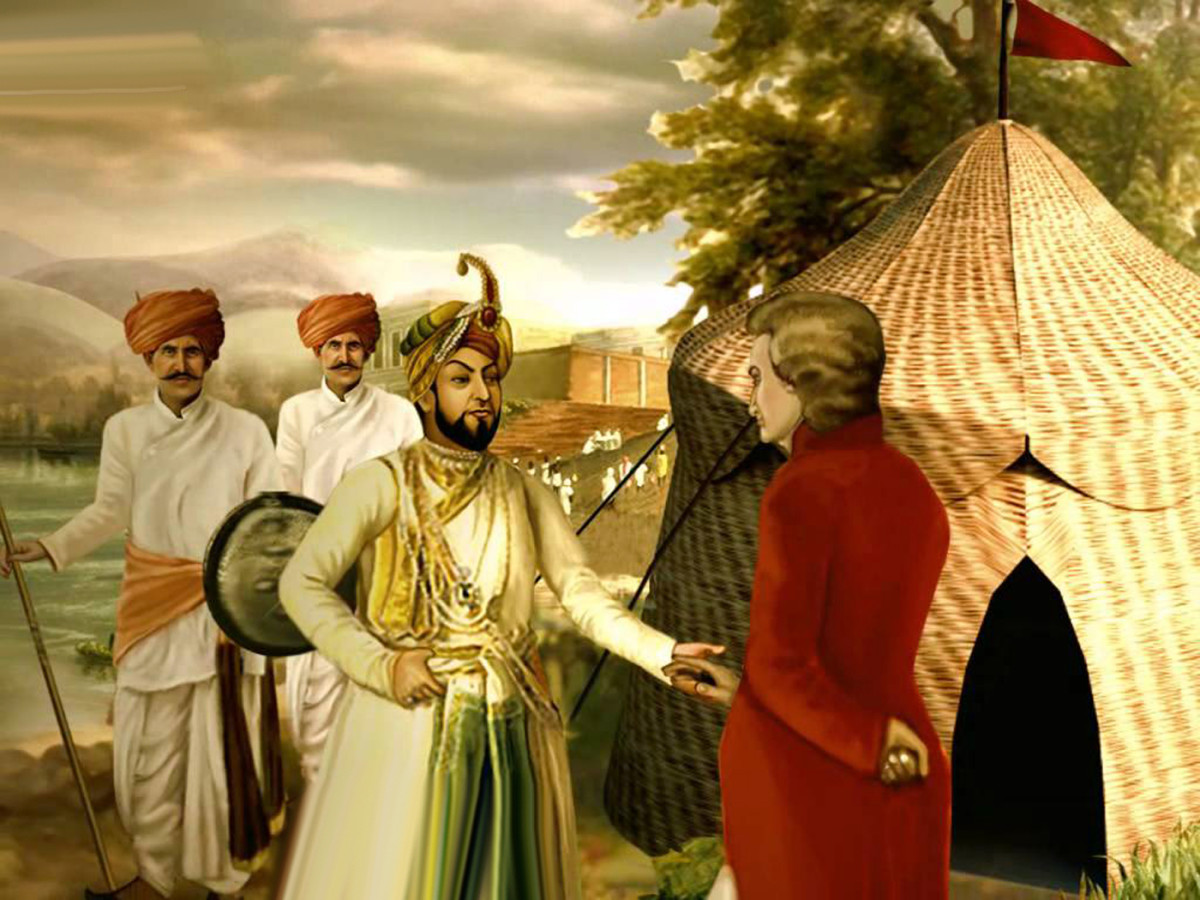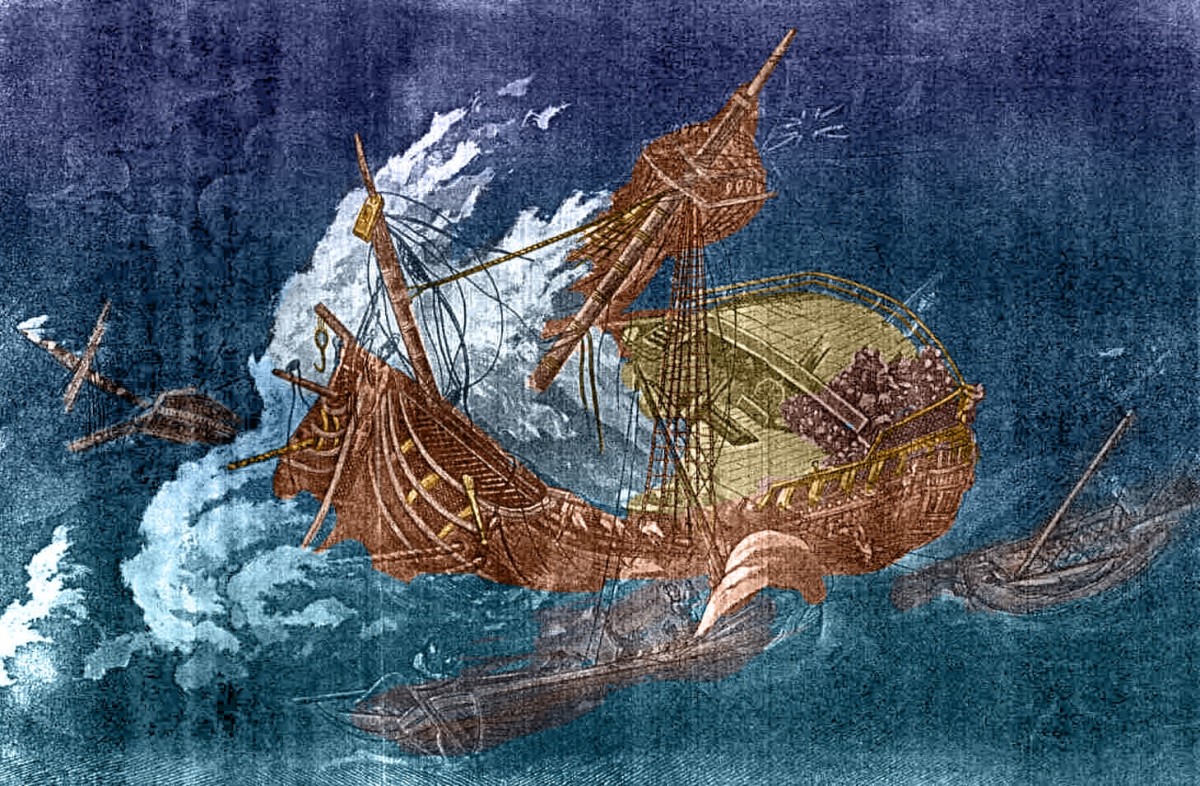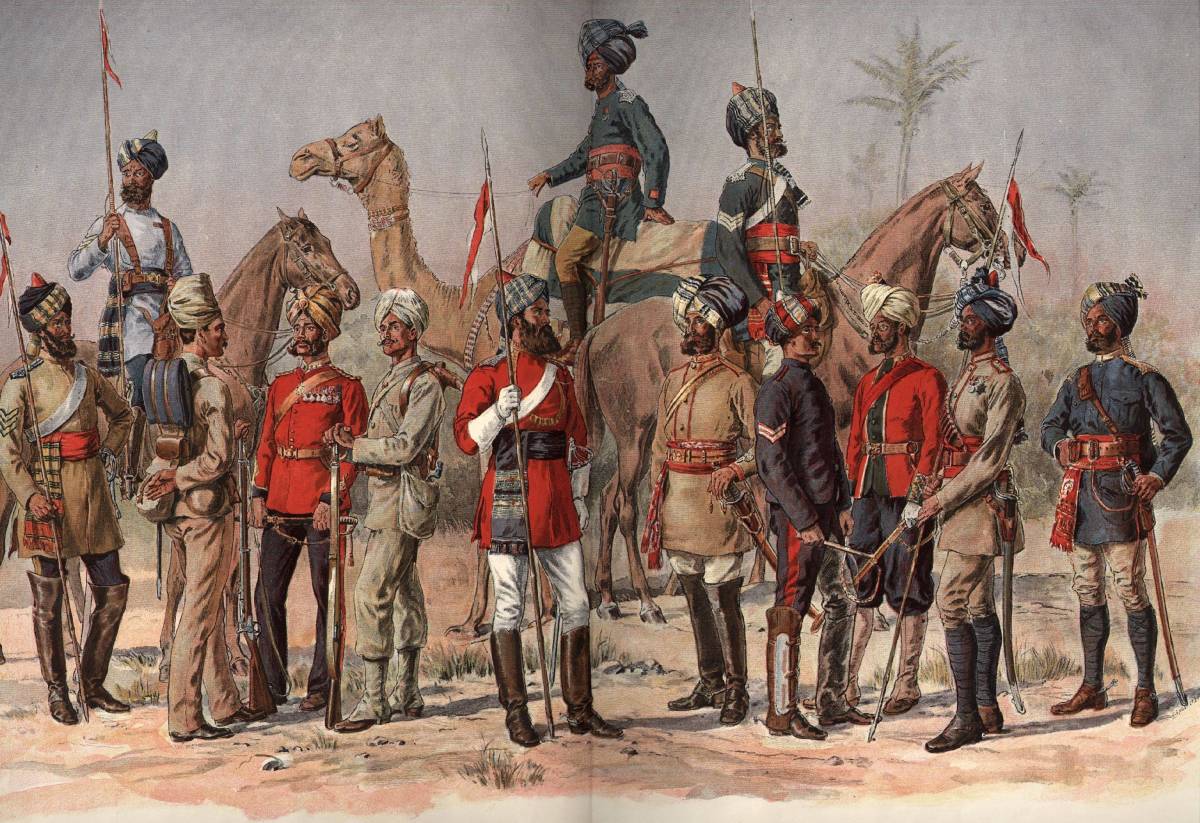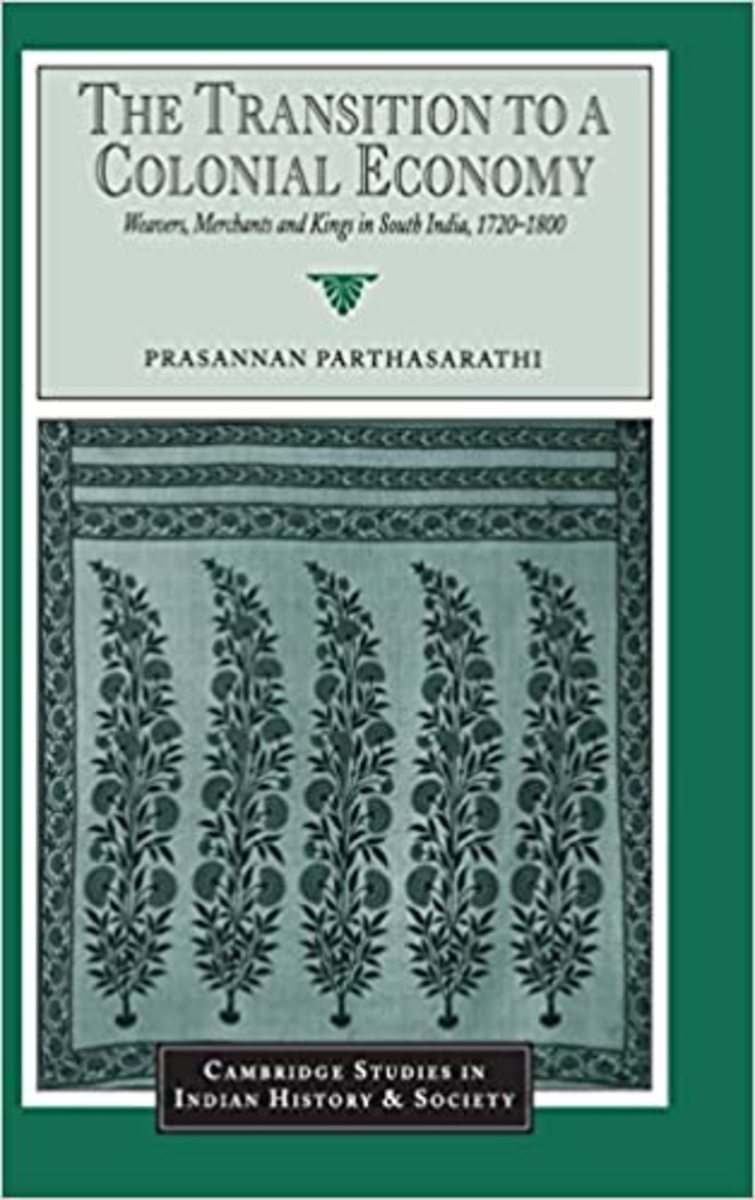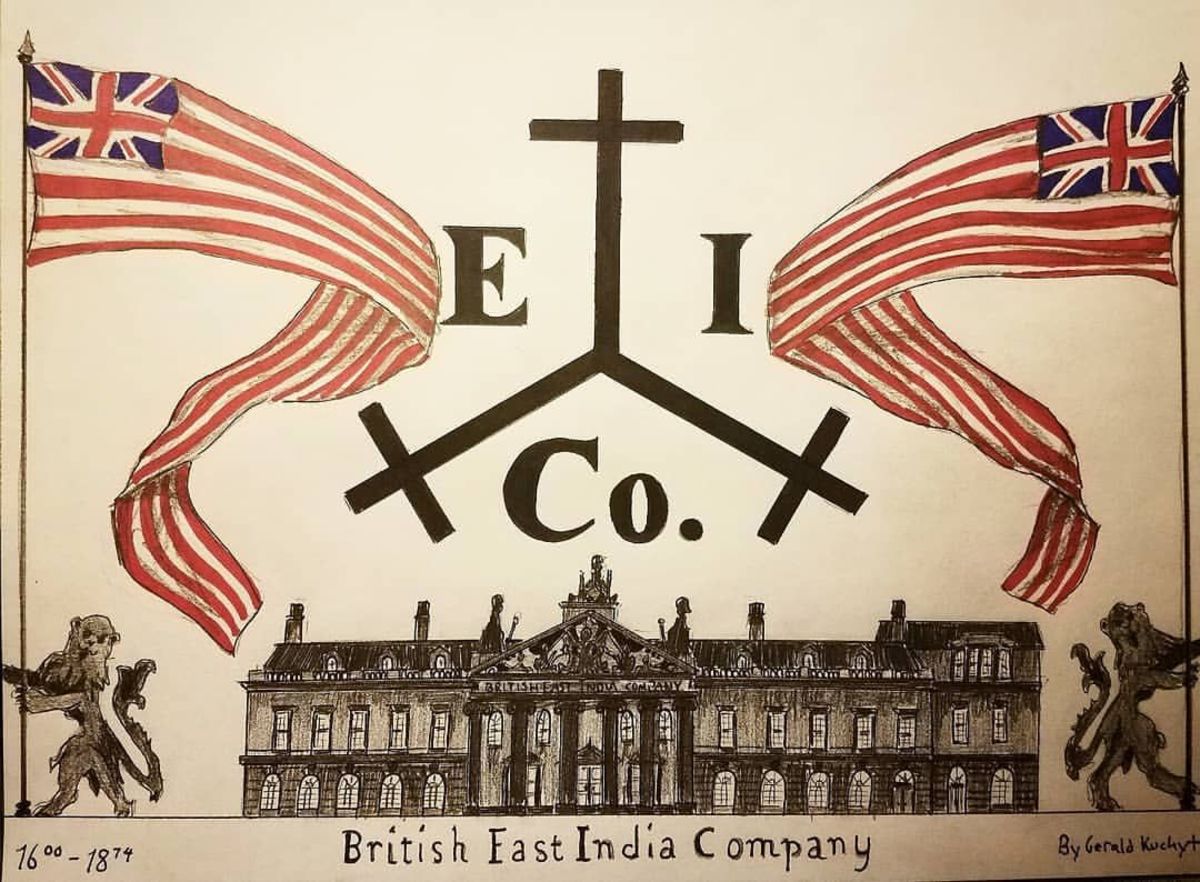Lal Paltan (part 6)
Lal Paltan. (part 6).
LAL PALTAN
By
A.D.Sarkar
The word lal in most Indian languages means red and paltan in 18th century India meant soldier. The origin of the latter word is not commonly known but one wonders if it was corrupted from the word platoon by Indians. Indians were very proficient at producing hybrid English words much to the frustration of white British teachers in India. The British of course reciprocated while using Indian words.
It is safe to translate lal paltan as a red soldier(s) but the word red is also confusing. It could be that the sahibs looked red in colour to most Indians as they took in the sun. One could say that that is the reason why they were called red soldiers. The other conclusion is that they were described as red soldiers because of the red coats they used to wear even in that heat. However, it is said that they dressed a few black soldiers, serving the British army, in red coats as well and Indians never called black soldiers lal paltan.
The British would say that India came under their political control by accident. If one is Indian and he or she reads history books carefully, written by European historians, the conclusion should be that occupation of India was executed under methodical planning. As in modern times they first demonised the ruler and spread the word that, being a superior race, it was their duty to civilise a benighted people. How else would they do it without occupying the throne? The nabab of Bengal, the representative of the Moghal emperor in Delhi, although very young was perspicacious and prescient because he saw through the machination of the British. He was determined to remove them by force at least from Bengal, Bihar and Orissa which he ruled legitimately as the heir chosen by his grandfather, the late nabab Alivardi Khan and confirmed by the emperor of Delhi in accordance with the prevailing custom.
On June 2nd 1756, the earth spun around its axis for the appropriate time and as Calcutta faced the sun obtusely, dawn broke but the day did not auger well for the inhabitants of the city. The town crier arrived with a drummer. The drum, known as dholok, was horizontal and suspended by a piece of red silk cloth around the neck of the drummer. He used a stick to beat the drum the head of which had a small half loop curling away.
The drummer used the stick to produce a few rapid single beats. After this the town crier proclaimed, “People of Calcutta's black town, listen carefully. The nabab of Bengal, His Excellency Sirajuddaula is displeased with the British sahibs who are trying to occupy Hindustan. He commands you, all of you, not to offer the British any cooperation. You must not sell them or give them any food nor any sort of merchandise for that matter. You must not provide services for them. Above all if you get to know of any conspiracy by them, inform the nabab immediately. Failing to follow His Excellency's command will mean very severe punishment.”
Similar warnings were given to the citizens of Kasimbazar, Mancar, Daudpur, Palashi, Catwa, Patli and right down to Diamond Point by the Bay of Bengal. Warnings were also pronounced in the western towns of Bardhaman and Midnapur and also in Jessore and Dacca in East Bengal. The citizens of Balasore in Orissa were told of the nabab's displeasure with the British. The people of Dum Dum towards the north-east of the black town were given especial warnings.
The British Governor of Calcutta representing the all powerful corporate body, East India Company, laughed at the suggestion that any potentate in India could be any match for the British, particularly since they had the impregnable fortification in Fort William. “With due respect,” said Captain David Clayton, “the fort is anything but impregnable. The walls are unsafe. There is hardly any area left in the fort because of the storehouses built there over the years.”
“Yes,” agreed Ensign Edward Picard, “it is more like a warehouse than a fort.”
The discussion was going on in the council chamber at a meeting summoned by Governor Drake. Others present were Holwell, Frankland, Mannigham and Captain Minchin. “I don't agree,” said Captain Minchin.”
Picard whispered to Clayton, “He hasn't seen a battle in his life and never been trained as a soldier.”
The Governor cleared his throat. “No whispering,” he said gravely. “This is a formal meeting.” The ensign and the captain apologised. The former spoke. “Sir, I submit that since the nabab's men are very likely to come from the north, we meet them at the Perrins Garden redoubt by the Chitpur bridge.”
“But you are already there aren't you?” asked Manningham.
“Yes,” replied Picard. “The problem is we need an army there. I have only ten European soldiers there at the moment.”
“How many men have we in the fort?” Drake asked Captain Minchin who hesitated.
Captain Clayton came to the rescue. He said, “When they don't desert we have altogether 275 soldiers in the Calcutta militia. Of these 40 are Europeans and the rest are Eurasians. At the moment 70 of them are ill with venereal diseases and malaria and 25 have deserted at the last count. They should be back any time though judging by their usual pattern of behaviour.”
“But surely we can enlist some more,” interjected Holwell.
“Some perhaps,” replied Picard.
“We can always get mercenaries,” suggested Clayton.
“What sort of mercenaries?” asked the Governor.
“They are always around,” replied Clayton. “The Dutch and the French mainly offer their services.”
“But we are at war with the French or will be soon,” said Captain Minchin.
“Stick with the Dutch then,” suggested Holwell.
Drake took a decision. “The three captains here,” he said, “should organize the army and the defense of the fort, although I don't think the nabab will dare attack us. He is a fickle dissolute youth.” The specification would have fitted Drake as well but nobody thought of it or, if they did, it would have been unwise to say so in public.
Ensign Picard said, “With your permission Sir I would like to man the redoubt at Chitpur. I have only 10 men. Quite reliable I may say.” He smiled as he uttered the last few words.
“I agree,” said Captain Clayton. “In fact we should try to send him a few more men.”
Drake was thinking of Omichand who assured the Governor that the nabab was well satisfied with the status quo. Particularly the profit from his raid of the French Kasimbazar factory should be enough to keep him quiet. Furthermore, Omichand assured the Governor, that if necessary he would get the black zaminder to levy some taxes on the Indians and send all the money to the nabab. There was nothing to fear especially since there was tremendous intrigue in his court. Whom could the nabab trust to mount an assault on Calcutta? He would have to move his army and equipment some 160 miles!
Drake had something personal to accomplish. He was looking for a country house for himself and heard that on the north-eastern point of the black town, only a few miles from the fort, was the settlement called Dum Dum where there were already single storeyed brick buildings abandoned by the Portuguese. It was a matter of choosing and occupying one of them.
He planned to camp at Chitpur for a day or two and then turn south-east to take the road to Dum Dum which pointed to the north-east. He sent a message asking Omichand to join him for an hour at Chitpur. He set off in the afternoon, an unusual time, because the second Indian month of Jaistha was blistering hot. He sat in a spacious palanquin open at both sides. Apart from his mace bearer, guards and soldiers, he was accompanied by his French and Indian chefs and his pastry cook; his Eurasian butler and the Indian under-butlers; the subahburdars and chobdars, analogous to ushers. He took with him specially trained Indians to look after the hounds imported from England. There were keepers for elephants and horses and hawks for hunting birds. He was also accompanied by servants who would fan him and his special guests and friends. There was the hubble bubble man and betel-nut man. He had also with him a barber to shave him and another barber to take care of his wigs.
The camp at Chitpur was put up ahead of him as was the demand. The Governor's tent was in splendid Moghal style but it was sparsely furnished. There were almirahs, wardrobes and cots; large mirrors on their own stands; a few marble-topped tables and a number of chairs. There were silver dining plates and cutlery.
Omichand was flanked by two attendants one of whom carried a square thick cushion. He was standing as he greeted Drake and was taken aback at the deliberate indifference with which he was treated by the Governor who sat down on a chair unceremoniously. Omichand's attendants placed the cushion on the floor in front of the Governor and helped him to sit down; permission was not sought. The merchant was obsequious as he spoke first, “I was at the point of going out on business when your messenger arrived. I said to myself had not the Company Bahadur protected me? Have they not helped me with my business? Have they not allowed me to stay at the edge of the white town, a very, very rare privilege for an Indian? So what does it matter if I lose a few thousand rupees' worth of business? I came right away.”
Drake looked straight at him and shortly said bluntly, “I will boot you out of the white town. You are a treacherous fat buffoon. We know your game.”
“What game?” asked a genuinely puzzled Omichand. “What game your honour?”
He could not bear the thought of being thrown out of White Town. His prestige was high because of it among Indians. Even the Moghal noblemen treated him with respect but the Governor's demeanour made him apprehensive although he maintained a calm and collected exterior. To his knowledge Englishmen seldom treat anybody with overt rudeness. They have a way of dealing with unfavourable situations. Whatever the way adopted there would be no straight talk as just experienced.
Governor Drake again looked at him for a few seconds and then clapped his hands twice. Two guards walked in with their swords drawn followed by a blacksmith. At a nod from the Governor the guards forced the merchant to stand up while the smith put ball and chain round his ankles. Then he chained his hands together held in the forward position. Two very low caste men were called and asked to take their slippers off. They approached Omichand, whispered, ' Forgive us Sir' and then slapped his back a few times with the slippers. The hitting was done in a perfunctory manner but physical pain would have been insignificant compared with the abject humiliation of of a Jain of high standing in Indian society due to such an action. To be beaten by someone's slipper is repugnant enough but when the act is dispensed by someone lower involves social expiation. Oichand was taken away as a prisoner in a bullock cart to the fort. Drake broke up camp and postponed his visit to Dum Dum. It seemed important to him to personally supervise Omichand's confinement in a cell. To the surprise of many he threw Krisna Das in the same cell as well.
Ensign Picard decided to get ready for battle. He drilled his 10 men, gave repeated instructions for speculated eventualities and assigned duties for each man. The men became enthusiastic. Life brought some purpose for them at last. The thought of death did not enter into the scheme of things.
The ensign recruited some black soldiers with the help of pagal sahib who went to the black town and shanghaied able bodied young men who, in his estimation, were a little more conscientious than average Bengalis. Strahan knew them well having liaison with many native women and producing offspring young though he himself was. The Bengalis were not inclined to fight physically. It did not matter because they were soldiers in name only. They were necessary for digging trenches, carrying gunpowder and do all other menial tasks. To make sure they did not leg it in time of danger, Picard conscripted a number of Eurasians as corporals who hated the natives more than a pukka sahib did.
Captains Clayton and Minchen, the latter nominally, examined the fort. It was in a sorry state announced Clayton. The gun terraces were practically crumbling. Some of the guns were so sited that buildings in front were in line of fire. These were dwellings of white employees of the Company or store houses including one containing saltpetre. There was a heavy cannon lying on the ground but the walls of the fort were too shaky for it to withstand the stress if attempts were made to lift it to the ramparts. The powder was damp.
Nevertheless, a trench was dug across Laldighi park and four cannon were sited at cross roads. The air was hot and humid but a feverish activity ensued. Charles Manningham became the colonel of the militia and John Zephaniah Holwell took command of one of the companies. A few officers were hurriedly created from among the writers and included a chaplain. A number of sailors, Strahan included among them, became infantrymen. Portuguese half-castes, Armenians together with a few Dutch and French mercenaries increased the numerical strength of the army to 514 of which 174 were white Europeans. The new recruits were given a quick training in how to use firearms.
Drake was not inactive. He arranged for the Moghal captain of Thana fort on the opposite bank of the river to be bribed and, for 600 rupees, no shots were fired while personal treasures of top company men were loaded on boats which lay anchored there.
Far away in Murshidabad, nabab Sirajuddaula came to see begum Lutfunnisa. “I am going to march to Calcutta,” he said suddenly.
“Why have you got to go janab?” Queried the begum. “You have Generals. Is it not their job to do all this for you?”
“I can't trust them,” answered Siraj.
“But you have Mohan Lal, Mir Madan and Jean Law!” the begum exclaimed.
The nabab turned sharply towards his wife. He asked in an amused tone, “How do you know all this? How do you know these names?”
“Ah, that would be telling,” said the begum in a child-like manner. She looked at Siraj for a while and then said, “But you don't have to go.”
“Why?” asked Siraj holding her chin in his right palm. “Will you miss me?”
“I may,” came the reply.
“Well you are coming with me,” said the nabab going up to the enclosed balcony and looking at the cortyard and the distant darbar hall. There was no darbar today. He would leave Mohan Lal and Jean Law's army chief St Frais in the palace. That should deter the conspirators from taking any underhand actions. At any rate Mir Zafar would be in overall command and Rai Durlabh would lead his own battalion for the planned Calcutta expedition. The nabab felt confident that with those two out of the way the palace would be safe.
He saw Ghasiti begum briefly. She did not show any interest in the nabab's adventure as she called it but his mother Amina begum was displeased. She did not agree that the British were evil and thought that it was a foolish exercise to march to Calcutta. She insisted that the British had no grand design on the masnad. They were just simple traders and of course they will employ all the cunning they could muster and make as much money as they could and go home to Britain. The son felt frustrated with his mother because, to him, the British were malicious freebooters. They abused the favour granted by a grateful witless emperor of Hindustan by encouraging all and sundry to fly the British flag on their boats and land vehicles to escape toll duty. They even wanted their fort to be battle ready with the flimsy excuse of defending it against the French.
So they moved; elephants gorgeously caparisoned. Pathan horsemen trotted or galloped. The infantrymen followed with their scarlet robes and matchlocks. There seemed to be thousands and thousands of armed men, oxen pulling guns, servants and cooks. There was the royal litter with one palanquin for begum Lutfunnisa and a few others for her maids. She was escorted by Siraj himself on horseback and other sowers with sabres drawn. In front of the begum's train walked chobdars with their flamboyant turbans and lances with nabab's colour dangling at the bottom of the blades.
Villagers and townspeople gathered with their mouths open to see the endless stream of these men. Some of them joined the procession. It was too good an opportunity to miss. It was unlikely that they would be able to go to Calcutta and watch the battle but at least they could accompany these mythical figures for a while.
The nabab's entourage stayed close to the river bank; passed Kasimbazar, Mancar with its bridge and Daudpur to their left on the opposite bank of river Hoogly. After Daudpur they turned right and then made a loop from north to south. The troops moved north-east, then south-west making a second reversed loop. They moved in the south-western direction for a while and then camped facing the Palashi grove on the opposite bank.
The local villagers gathered to wish their suba victory and glory. They danced and sang, men and women, young and old together. They sang the song of Holi, a festivel that was over two months earlier. The drummer played kaharfa on the dholak an eight beat rhythm -dha gey na tun na kay dhin na and introduced various other syllables within those eight beats as is the custom in Indian drumming. Siraj held back his tears. Mir Madan said “You are sad my boy. I will send them home.”
“No,” replied Siraj softly, “don't do that.” He leaned over, held Mir Madan's hand and said hoarsely, “If I survive, I will rule justly; with equal treatment for all, irrespective of their religion.”
The British were busy. Strahan or pagal sahib, as most Indians would call him, was sent to various mandirs, temples, of Ma Kali, a devi, with goats for sacrifice by Raghu, an Indian accounts clerk at the company office. Raghu knew Strahan well so he told him bluntly that the Governor wanted Strahan to give this task of transporting the goats to the temple urgently but the sahib had his own ideas. He promptly sold some some of the animals at concessionary prices to Hindus for sacrifice, hungry for good karma and hence credit in this life, but he made sure of sacrificing some of them and praying for victory in the oncoming battle for his kith and kin. Raghu's brother from Fulta to the south of Calcutta was summoned to the fort to offer puja, a ritual, which the sahibs attended with folded palms. The purohit, the one who carries out various rituals, Raghu's brother, asked the devi for the sahibs' victory.
There were intense political activities too. Holwell sent messengers to Rai Durlabh offering immense wealth if he turned traitor to the nabab. Omichand and Krisna Das were released from their confinement in a cell but put under house arrest. The Governor asked them to write to the nabab's Generals offering rewards if they did not fight when the time came, but both of them sulked defiantly and did nothing for the East India Company.
Tempers frayed. Brahmin sahib wanted to help. The chaplain suggested that he should get out of the way by staying in the black town with the idolatrous Hindus.
Brahmin sahib called him a fanatic, a close minded imbecile. They came to blows and were prepared to fight a duel but Manningham saved the situation. He suggested that Brahmin sahib should take charge and make sure that all the valuable books were stashed away in one of the boats anchored by Thana fort. There was a library at Fort William which stocked Latin and Greek classics with authors such as as Shakespeare, Bacon, Locke and Descartes among others. There were Ralegh's History of the World, Hakluyt's Voyages and Vitruvius's De Architectura. The library contained many copies of the bibles and spiritual works.
The council at Calcutta sent word to the Madras council far away in the south in the Bay of Bengal. The Madras Governor, thought Drake, was bound to send soldiers and ammunition which should keep the Indian army at bay for two months or so. There was no promise of help and the sahibs at the fort panicked as intelligence reached them that the nabab's army was moving remarkably fast. True enough on June 15th 1756, the mythical figures crossed the river near Hoogli and marched vigorously towards the south to Baranagar. Chitpur now was only two miles away.
The news reached the fort fast. Holwell said to Captain Minchin, “War is upon us. I believe the nabab has 30,000 horses, 3,000 elephants and one hundred thousand infantrymen.”
Captain Minchin said, “In that case they can fire 100,000 bullets from their matchlocks. All they need to do is to stand in a row and fire at us. We will all be finished.”
“Don't forget,” added Holwell, “they will have thousands of cannon.” Someone heard the conversation. When the news reached the European and Eurasian ladies in the fort, the enemy cavalry had swelled to 100,000, the elephants to 30,000 and the number of cannon was now believed to be 100,000. They surmised that there were at least one million foot soldiers and sorcerers to hypnotise the residents of the fort. The Indians from the black town now arrived en masse including the native women of the European soldiers living immediately east of the Marhata ditch.
The fort was about 700 feet long, its northern face being 310 feet and the southern one 500 feet wide. The armoury and the flagstaff were to the north and there was space between them for people to squat. South of the armoury was the writers' Building and further south was Governor's house. All around it was empty space including the parade ground to the east of Governor's house. The fort was surrounded on all sides by high walls. There were two gates on the western side, the North River Gate opposite the armoury and the South River Gate opposite the center of Governor's house. These connected to the long wharf extending the whole length of the fort by the river bank. There was only one Eastern Gate and it was through this that the inhabitants of Black Town rushed into the interior of the fort. Very quickly the parade ground and all the empty places became full to capacity. Even the barracks immediately south of the eastern gate became occupied by the Indian wives of the soldiers.
Drake's own apartment in Governor House was opposite the barracks. He was furious when he saw the teeming men, women, children and old folks from a balcony He himself came out to the parade ground and shouted, “Who let them in?”
Pagal sahib came forward, touched his forelock and said, “Excuse me your honour, I did.”
“Well be a good chap and get them out of here immediately.” He returned to his residence after giving the order.
Captain Minchin said, “You heard the Governor. Get them out of here.”
Strahan looked straight at him and said, “Begging your pardon Sir. These are our women, their parents and relations. The kids were fathered by us.”
A murmur was apparent among the European soldiers as they gathered behind Strahan. The murmur became a noise. “Quiet,” shouted the captain. He then lowered his voice and said to Strahan coming close to him, “These are only native women and very low caste at that. All of you can get plenty of new ones once we have thrashed these Indian terrorists from the north and chased them out of Calcutta. Let them go back to wherever they came from. They will survive. Don't you worry.”
The murmur and noise from the men now transformed quickly into derision as they overheard the captain who became alarmed. He shouted nervously, “The decision has been taken by the highest authority. Those refusing to obey the order will face court-martial.”
“There will be nobody left to court-martial Sir,” answered Strahan politely.
“How do you make that out,” enquired the captain.
“Because we will be leaving you silly man,” someone shouted from the crowd.
Pagal sahib went over to the crowd, dragged the man out in the open and slapped him hard. He shouted raising both arms in the air, “Now men, there is no need for insolence. That is uncalled for.” He then turned to the captain and said, “We are sorry captain Sir. Aren't we men?”
“Oh Aye, Oh Aye,” came a chorus of agreement.
Pagal sahib was surprised at his own ability as a leader of men. He felt important and said to himself that he managed all this without a drop of drink. Running backwards and forwards to the Kali mandir, bringing his family to the fort made him forget the only thing that was worth living for. He always maintained that God made whisky first in Ireland before he put human beings on this planet. There was no whisky in India because the country was reserved for the natives but, to be fair, there was arrack and plenty of it. Not only arrack, one could smoke opium and hashish. All this made life tolerable for Strahan. Suddenly he longed for a drink but first there was his duty to discharge as leader of men.
The man who was slapped shouted,”Hey, Irish idiot, we have got all day; have we?”
Strahan moved towards him without a second thought. At this the man ran for his life and disappeared through the East Gate.
“So, now Sir,” spoke Strahan addressing himself to Captain Minchin, “We have to have our women and children and the old folks here. Or else we must say goodbye to you your honour, Sir,” He tagged at his forelock.
This was mutiny. Minchin was at a loss to know what to do in a situation such as this. He consulted the Governor, Holwell, Manningham and Clayton. It was decided that the men could keep their families here but they must accept responsibility for driving the other natives out of the fort.
The waiting Indians had little idea about what was happening because the proceedings were being conducted in English. They had the premonition of something unfavourable to them being imminent as pagal sahib, with the assistance of the other European soldiers, rounded them up kicking the posteriors of those natives who refused to comply. Columns of men and women were then formed by tying half a dozen of them with one piece of rope. One end of the rope was fastened first round the waist of one man; It was then wrapped round the one behind the first until the sixth man was tied up securely. The women were divided into different groups in the same way. A length of bamboo was then slipped horizontally between the legs of the men, each end of which had a small piece of rope which dangled freely. The hanging rope in the front was wrapped around the neck of the leading man while the other piece was tied around the sixth man in exactly the same manner. The bamboo reached up to the knees of the six men. This was an Indian way of transporting prisoners by foot and the sahibs learned it to their benefit. The object of the bamboo was to impede the progress of the men should they decide to flee. The women were exempted from the bamboo treatment.
There were thousands of Indians from the black town and only a few hundred could get inside the fort. They were jostling outside by the East Gate. Some of hem went round the southern part of the fort and crowded the stone wharf. Others sat on the reinforced river bank. Some of them went down the landing stage stairs opposite the South River Gate, climbed the crane and jumped into the river for no apparent reason.
Not unexpectedly, the largest crowd was on the eastern side of the fort where they were shouting at one another, the women being more vocal than the men. They, men and women alike never came to blows but it may have quietened them down if they did so.
Strahan was running out of bamboo and ropes. He had also to put up with impatient outbursts from the captains not infrequently as they were coming out to watch the progress. Seeing the men with bamboos in such precarious positions a woman began to wail in a loud voice, “Ei ray, sarbanas holo.” “O Ma go.” This can be loosely paraphrased as “Oh! Oh! All is lost” or “The end is nigh.” “O dear mother of mine.”
A young man suggested,”Let us beat up the red men.”
“Beat up the red men!” exclaimed an elderly Indian. “Have you seen the size of them?”
The young man did take a good look. The little Bengalis were dwarfs beside the massive Scots, Irish and Englishmen. In the sultry scorching heat of the day all they wore were a pair of shorts. Their pink bodies and their hairy chests struck terror in the hearts of the little Bengalis. Not many of them had seen blonde or red hair, blue or green eyes at such close quarters, being inhabitants of the far eastern end of the black town or beyond. It was not true that the red men smelled like billy goats. They must bathe after all.
The men talked between themselves for a minute or so and then the elderly man came to Strahan. He said, “Sahib, there is no need for the rope and bamboo treatment. We will go. We came because the sahibs always gave us protection. I never could dream of the sahibs throwing us to the mercy of the whimsical nabab from Murshidabad. Untie us and we will leave the fort.”
Members of the Lal Paltan looked at one another and Strahan shouted unnecessarily. “Come on,” he shouted, “what are you standing around for you good- for- nothing fellows? Release the pole. Untie them.” The men, women and children left the fort quietly. It was four in the afternoon.
The luckless black Calcatians, the citizens of Calcutta, hardly rested in their homes after their ordeal at the fort when they noticed a small body of Lal Paltan with torches in their hands approaching their huts. It was pagal sahib again with about 20 Europeans. A native drummer beat an Indian drum and an announcer warned the people to leave and go somewhere; anywhere. In no time the torches whizzed noisily through the moonlit sky and landed on the thatched roofs of the huts. Women screamed and ran, some with babies on their waists. Others ran as well. Some burnt to death but most of them escaped and found shelter in the forest beyond the surrounding villages.
Returning to the fort, the 20 members of Lal Paltan found the Eurasian and European women screaming in chorus. The native women all huddled together in the open air looked dazed. There were no other Indians left in the fort except the mace bearer; the subahburdars and chobdars. For as news came of the advancing army from Murshidabad, the numerous Indian servants, cooks and other staff left the white town unceremoniously.
It was a confusing time for Strahan. What was the point of burning these blacks out?
They would have gone anyway into the forest. This God forsaken country he thought, as he started slapping himself all over the body to kill the stinging mosquitoes.
The black town burned noisily and a high wind blew the fleecy clouds making the moon play hide and seek with the earth. Very soon more clouds would gather as the monsoon strikes from the south-east. Strahan in the meantime got drunk with arrack and became blasphemous.
----------------------------------------------

